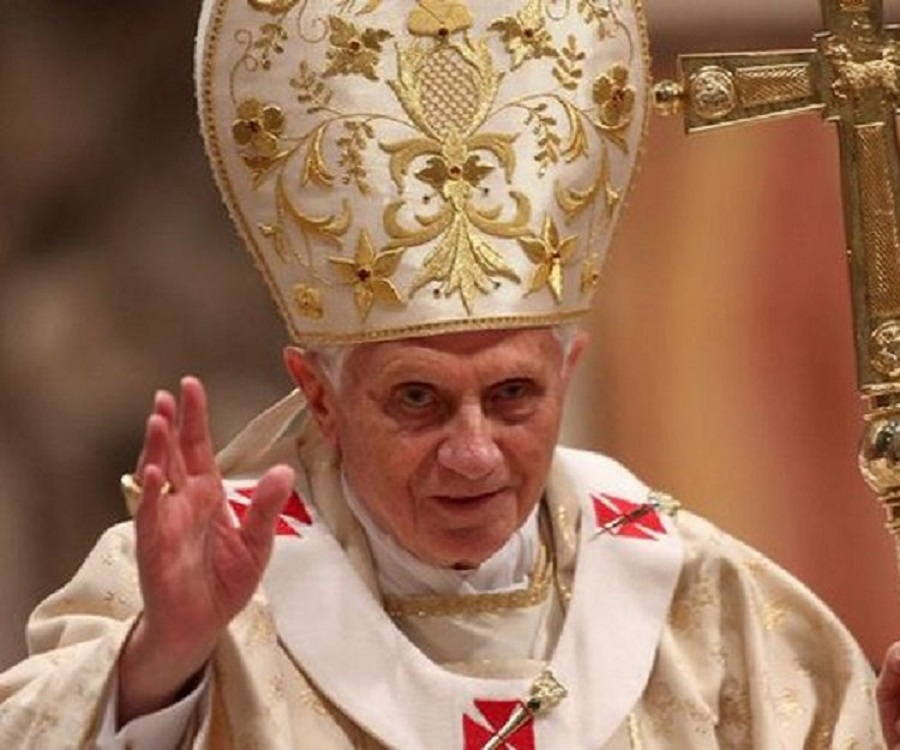I loved Pope John Paul II, and like many converts, affirm that he was a powerful influence in my life and my conversion to the Catholic faith, but standing right behind John Paul was the gentle, strong presence of Joseph Ratzinger. He was, if you like, the rock beside the Rock that was Peter’s successor John Paul.
Now, on the morning of his death I have reason to recall my own feelings about him and his ministry.
I only met him once. I was in Rome for a conference and on a winter morning I made my way to St Peter’s to attend an early Mass. As I was making my way across a frosty St Peter’s Square I spotted the famous Ratzinger wearing a dapper overcoat over his cassock, carrying a briefcase and topped with a neat black beret. I caught his eye and nodded a good morning. He smiled and nodded his greeting back.
A few years later he would be elected pope and through the wheels of bureaucracy, would touch my life in a more personal way. It was 2006 and my application to be ordained as a Catholic priest had languished for ten years after my reception into the church in 1995. By this time I had been accepted as a candidate for ordination by the Diocese of Charleston, but the dossier-application for a dispensation from the vow of celibacy had to be presented in Rome. The paperwork went off and was returned in record time–having been signed off by Benedict XVI
Benedict XVI was one of the few theologians in Rome who actually understood and appreciated the genius of the Anglican tradition. His advocacy for the canonization of St John Henry Newman was evidence that he valued not just Newman’s theological writings, but also Newman’s personal life of gentle scholarship, self sacrifice and deep spirituality. In many ways Ratzinger can be seen as a follower of Newman.
He loved the things Newman loved–beauty in liturgy, the sacred Scriptures, poetry and music and most of all the Lord Jesus.
A short time after I was ordained as a priest for the Diocese of Charleston Pope Benedict XVI created the Anglican Ordinariate–a remarkable ecumenical achievement–which was (and is) much misunderstood and maligned by liberals in both the Church of England and the Catholic Church in England. God plays a long game. The Ordinariate is presently small and struggling, but Benedict XVI planted a seed and I believe the Ordinariate will expand and 0ver the years prove to be a valued contributor to the unity of the Church worldwide. While I am not a member of the Ordinariate, I hope it will expand to include the Anglican churches in the Commonwealth and that it will provide a way for an increasing number of Christians in the schismatic Anglican churches to be re-united with the Catholic Church.
Unfortunately, for some time, Benedict will probably be remembered only for his surprising resignation, but I believe the clue to his long term legacy lies in his choice of papal name. I loved the fact that he was also a devotee of St Benedict. He understood the Benedict Option. He understood that a decadent and despairing culture could be re-built brick by brick by faithful people living together in lives dedicated to prayer, work and study, and that from these small communities of faith a new Christendom could rise–a renewal of faith, a renewal of culture and a conversion of the world.
This is the model I have for my own parish–a community of faithful families and individuals who are living out the faith in turbulent times–in beauty, truth and goodness–with beautiful liturgy, faithful teaching, ministry to the needy, educating the young and revealing the fullness of the Christian faith in worship, words and works.







Leave A Comment
You must be logged in to post a comment.